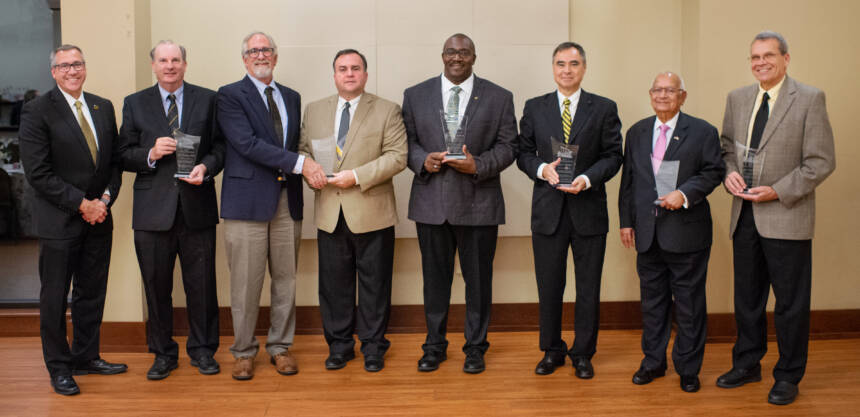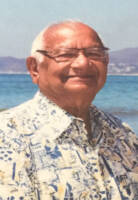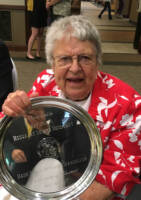The College of Agriculture, Food and Natural Resources has honored its second class of recipients of the CAFNR Column Award for Distinguished Alumni.
This is the only award specifically for alumni presented by the college. The awardees include one graduate from each of CAFNR’s six divisions, reflecting the six historic columns at the University of Missouri.
“We are proud to recognize these six impressive graduates of our college with the highest alumni honor from CAFNR,” said CAFNR Vice Chancellor and Dean Christopher R. Daubert. “This award is unique – and prestigious – as it is given directly by the college and its divisions for exemplary achievement.”

The alumni were honored Friday, Oct. 4, at an event in Columbia. They are:
Animal Sciences
 Darryl Chatman
Darryl Chatman
BS Animal Sciences 1997, MS Animal Sciences 2001, MS Agricultural Economics 2007, Juris Doctorate 2008
Chesterfield, Missouri
Darryl is the Senior Vice President of Governance and Compliance with the United Soybean Board, in addition to serving on the University of Missouri Board of Curators. Prior to his current appointment, he was the general counsel for the Missouri Department of Agriculture (MDA). He was previously an attorney with Armstrong Teasdale, LLP, in St. Louis, where he served as the leader of the firm’s agriculture and biotech practice group, working on legal disputes involving animal health, life sciences and agricultural issues as well as regulatory compliance, commercial litigation and employment litigation. From January 2015 until January 2016, Chatman served as a deputy director for the Missouri Department of Agriculture.
Chatman previously served on the St. Louis Science Center Board of Trustees, the St. Louis Agribusiness Club Board of Directors and has served on search committees for the University of Missouri, including Athletic Director and Dean searches in 2016.
“Darryl’s main focus while in school was agriculture and studies on rural economic development,” said Bill Lamberson, director of the Division of Animal Sciences, in his nomination letter. “When he was employed at MDA, he helped reboot the Life Sciences Quest program, which brings urban high school students to Mizzou for a summer academy to learn about degrees and careers in agriculture and life sciences. Educating urban students that there is more to agriculture than row crops and livestock and letting them know that there are other opportunities in the agriculture industry such as biotechnology, animal pharmaceuticals and brewing industries is a passion for Darryl.”
“My exposure to Mr. Chatman’s leadership, scholarship, and intellectual curiosity comes from his time as a master’s degree candidate in the Division of Applied Social Sciences (then the Social Sciences Unit) during the 1999-2001 academic years,” said Joe Parcell, director of the Division of Applied Social Sciences. “Even then Darryl was a constant promoter of the college and MU.
“He represents the heights of achievement in his profession, and he uses his CAFNR education to serve Missourians affected by agricultural law and policy. His position on the Board of Curators for the University of Missouri system ensures that CAFNR’s needs are represented in difficult economic times at the highest level among many competing voices across four campuses.”
Applied Social Sciences
 John Phillips
John Phillips
PhD Rural Sociology 2003
Bishop, Georgia
John is executive director of First Americans Land Grant Consortium (FALCON), a non-profit association of tribal university “1994” land-grant administrators, directors, faculty and staff. He also is a director of the American Indian Higher Education Consortium (AIHEC) land-grant programs and policy. John is the principal of John Phillips Consulting, which provides teaching, extension, and research services related to community development, with an emphasis on rural and Native American populations.
From 2000-05, he was the first 1994 Land-Grant Institutions (Tribal Colleges and Universities) liaison with the U.S. Department of Agriculture. He was responsible for representing the interests of the 1994 Land-Grant Institutions throughout USDA and the public. John also provided executive resources to the USDA/AIHEC Leadership Group, a national advisory board comprised of top USDA and AIHEC officials.
John directed the Cooperative Extension Program at Si Tanka College on the Cheyenne River Reservation, South Dakota, from 1997 to 1999, for which he was awarded a USDA Secretary’s Honors Award and a USDA Cooperative State Research, Education and Extension Service (CSREES) Administrator’s Recognition.
In 2017, Dr. Phillips was inducted into the National Institute of Food and Agriculture (NIFA) Hall of Fame. He has served as a Peace Corps volunteer in Swaziland, Africa. He is the chair of the National Association of Community Development Extension Professionals (NACDEP) Member Services Committee.
“Dr. Phillips exemplifies a CAFNR alumnus whose contributions to his industry are a testament to the education he received at MU and whose service benefits populations across the nation,” said Joe Parcell, director, Division of Applied Social Sciences. “When John Phillips came to MU he had already established himself as an extension professional. However, when the opportunity to pursue a PhD at a land-grant institution while also contributing to research into higher education and economic development in Native American communities arose, he joined the CAFNR family to contribute to a research project in the department of Rural Sociology.
“He is an alumnus of whom we in the Division of Applied Social Sciences are very proud, and his association with CAFNR and MU reflects well on the quality and caliber of research and extension professionals CAFNR contributes to all the people of this nation.”
“John continued in this critical liaison role between AIHEC and USDA while working on his doctoral degree – no small achievement!” said David J. O’Brien, professor in the Division of Applied Social Sciences and Phillips’ PhD advisor. “Since receiving his PhD, John’s contributions to the land-grant mission have been remarkable.”
Biochemistry
 Kamal “Doc” Yadav
Kamal “Doc” Yadav
MS Biochemistry 1962, PhD Biochemistry 1966
Ladue, Missouri
Kamal “Doc” Yadav served as the president/CEO of Chemco Industries, Inc., a green, industrial cleaning chemical manufacturing company based in St. Louis, with customers including Walmart, eBay, Amazon, and the federal government. Doc came to the U.S. from India with $15 and a bachelor’s degree in 1961.
He founded Chemco in 1975 – after receiving his master’s and PhD from Mizzou, and after working for Monsanto as a research chemist – with $5,000 of his own money, and expanded the business into a multi-million dollar corporation. At first, Chemco sold maintenance cleaning solutions for industrial and institutional uses. After several years of continued growth and profitability, Doc expanded business operations to manufacture a majority of Chemco’s products, as well as provide on-demand specialty formulations resulting in a unique niche among the competition. He sold Chemco Industries, Inc., in September of 2017.
The company and Doc, as its founder, have been honored by the Small Business Administration, the Missouri House of Representatives, and many other organizations in recognition of the company’s growth and contributions to the specialty chemical industry. He authored a book in 2010 on how to tap entrepreneurial spirit, “The Formula of Financial Freedom: How I Turned my $15 into Millions as an Entrepreneur.”
Doc and wife Sudha have been supporters of CAFNR over the years, including establishing a scholarship in honor of his PhD advisor, George B. Garner.
“Doc is a shining example of what you can do when you leave your ego at the door, get in the trenches and work hard,” one nominator said. “He cleaned dishes while taking entry level graduate classes to prove his worth as a graduate student. Fast forward 50 years and he built a successful multimillion-dollar company from nothing more than a gifted desk and lab bench. Yet, he’s more proud of the fact that he brought his employees along with him and made them successful too.
“In addition to being a successful scientist and businessman, Doc is a master motivator. He always has advice at the ready, no matter how your day is going, you always leave a conversation with Doc energized with a big smile on your face.”
Food Systems & Bioengineering
 E. Allen Foegeding
E. Allen Foegeding
BS Agriculture 1975, MS Food Science 1978
Raleigh, North Carolina
Allen is the William Neal Reynolds Distinguished Professor Emeritus of Food Science at North Carolina State University and Editor in Chief for the Institute of Food Technologists (IFT) Scientific Journals.
His career has focused on advancing the understanding of chemical and physical properties of foods through teaching and research. His research has provided insight into how food biopolymers function in foods, with a focus on whey proteins in forming sols, foams and gels. His latest work has emphasized how food structure breakdown during oral processing affects sensory texture and satiety. His research has produced more than 200 refereed journal publications.
Allen is a fellow in the Institute of Food Technologists, the Agricultural and Food Chemistry Division of the American Chemical Society, the Royal Society of Chemistry (UK), and the American Association for the Advancement of Science. In 2016 he received the Nicolas Appert Award for preeminence in and contributions to the field of food technology.
“Dr. E. Allen Foegeding is an internationally-acclaimed authority on protein functionality and performance in food systems,” said Christopher Daubert, CAFNR vice chancellor and dean. “His fundamental approach to science has blended scientific concepts from many disciplines, resulting in unique discoveries only possible through multi-disciplined collaborations. His entire career and research achievements testify to the importance of effective collaborations and partnerships to solving challenging problems.”
“Professor Foegeding is a recognized authority in chemical and physical properties of foods and food materials,” said Jinglu Tan, director of the Division of Food Systems and Bioengineering. “He has made numerous contributions to the understanding of the relationships among food materials, food product properties, and food sensory qualities. He has won many awards as a researcher and educator. We are proud of his accomplishments.”
Plant Sciences
 Eric Triplett
Eric Triplett
PhD Agronomy 1981
Gainesville, Florida
Eric is professor and chair of the Microbiology and Cell Science Department, Institute of Food and Agricultural Sciences (IFAS), at the University of Florida. He received a Fulbright Award in 2003, to travel as a visiting scholar at the Research School of Biological Sciences, Australian National University, Canberra. He has had grant support from both the USDA and NSF.
Research from his PhD studies on ureide synthesis in soybean nodules was published in textbooks around the world. After his PhD and Postdoctoral programs, Eric’s research broadened from root nodule bacteria to include soil bacterial studies more broadly. His most highly cited publication (>1,562 citations) used high throughput DNA pyrosequencing and statistical inference to assess bacterial diversity in four soils across a large transect of the western hemisphere. This work was the most comprehensive examination, at that time, of bacterial diversity in soil and suggested that agricultural management of soil may significantly influence the diversity of bacteria and archaea. More recently at the University of Florida, his overall goal is to determine the drivers of microbial diversity in a wide range of environments. One of Eric’s recent studies is focused on the citrus greening disease, currently a huge problem for the citrus industry in Florida.
Since taking his administrative role, the area of molecular biology has rapidly increased in research laboratories around the world. Accordingly, he has modernized the undergraduate curriculum in his department so students can learn how to manage large datasets in molecular biology. His faculty have added new courses in genome sequencing, bioinformatics, programming for biologists, statistical genomics in R and an introductory course in genomics. They have modernized their graduate curriculum to include courses in genomics, bioinformatics, host-microbe interactions and biofilms, for example.
“Since 2003, he has served as the Chair of the Microbiology and Cell Science Department at the University of Florida. In that role, Eric has led his department through significant growth in student enrollment, diversity, and research productivity while maintaining his own very active program of research with major impacts in the area of soil microbiology,” said Jim English, recently retired director of the Division of Plant Sciences, in his nomination letter. “I believe that Eric’s accomplishments, from the time of his graduate studies and continuing through his current academic and administrative leadership make him highly deserving of being named the Division of Plant Sciences Column Award winner.”
“His PhD research at Mizzou produced results that were critical to our understanding of the processes of nitrogen fixation and metabolism in soybeans, and the contribution of root nodule bacteria to the growth and development of the host leguminous plants,” said Dale Blevins, professor emeritus, plant sciences, and Triplett’s PhD advisor. “Dr. Eric Triplett is a terrific example of a highly successful PhD product of the University of Missouri. His array of accomplishments in research, undergraduate and graduate student teaching programs, and administration are outstanding. Eric’s ability to balance a very productive research program with teaching and building a very strong department as Chair, is truly amazing!”
School of Natural Resources
 Hilda “Pat” Jones
Hilda “Pat” Jones
BS Agriculture (Soils Emphasis) 1950, Honorary Doctorate of Humane Letters 2017
Williamsburg, Missouri
Pat was the first woman in the state to graduate with a degree in Agriculture and was considered a master conservationist in Missouri. She and her husband, Edward “Ted” Jones, donated 711 acres in eastern Callaway County, which became Prairie Fork Conservation Area (PFCA). PFCA is operated as a teaching center by the Missouri Department of Conservation, the School of Natural Resources and the Missouri Prairie Foundation. As part of this $1.6 million gift, the Prairie Fork Trust was created to provide oversight and additional funding for activities related to natural resource education, restoration, management and research. PFCA hosts 5,000 students each year.
Pat and her husband also contributed to the creation of two rail-trails in Missouri: the 240-mile Katy Trail State Park and the developing 144-mile Rock Island Trail.
She received the Lifetime Achievement Award from the Conservation Federation of Missouri and the Frederick B. Mumford Award for Distinguished Services from CAFNR, both in 2014. She was awarded the Master Conservationist Award in 2006 by the Missouri Conservation Commission, the highest honor bestowed upon citizens of the state who have accomplished exemplary conservation work.
Pat passed away in December 2018. Her legacy can be summarized by her oft-made statement when young children came to her farm, “Learn, get dirty and have fun!”
“Pat was a colleague, at least as much as an alumna or donor,” said Pat Market, interim director of the School of Natural Resources, in his nomination letter. “Her passion for education of the public and outreach to students (especially younger children) regarding conservation topics was life-long. Pat was called the ‘Prairie Godmother’ and lived her life immersed in philanthropy and education and she hoped to share both with everyone she came into contact with.
“Her philosophy about natural resources was that they needed to be valued so that they would be sustained. She championed her love of the land and was never shy about speaking up about anything that was a threat to conservation. She lived life on her own terms and was a wonderful model and example to so many others.”
“I have never been associated with any individual who demonstrated a dedication to agriculture, conservation of natural resources and the engagement of youth that exceeds that of Pat Jones,” said Albert R. Vogt, director emeritus, School of Natural Resources. “I offer my greatest possible round of applause in congratulating Pat Jones. I only wish she could be here to enjoy the recognition included in this award.”